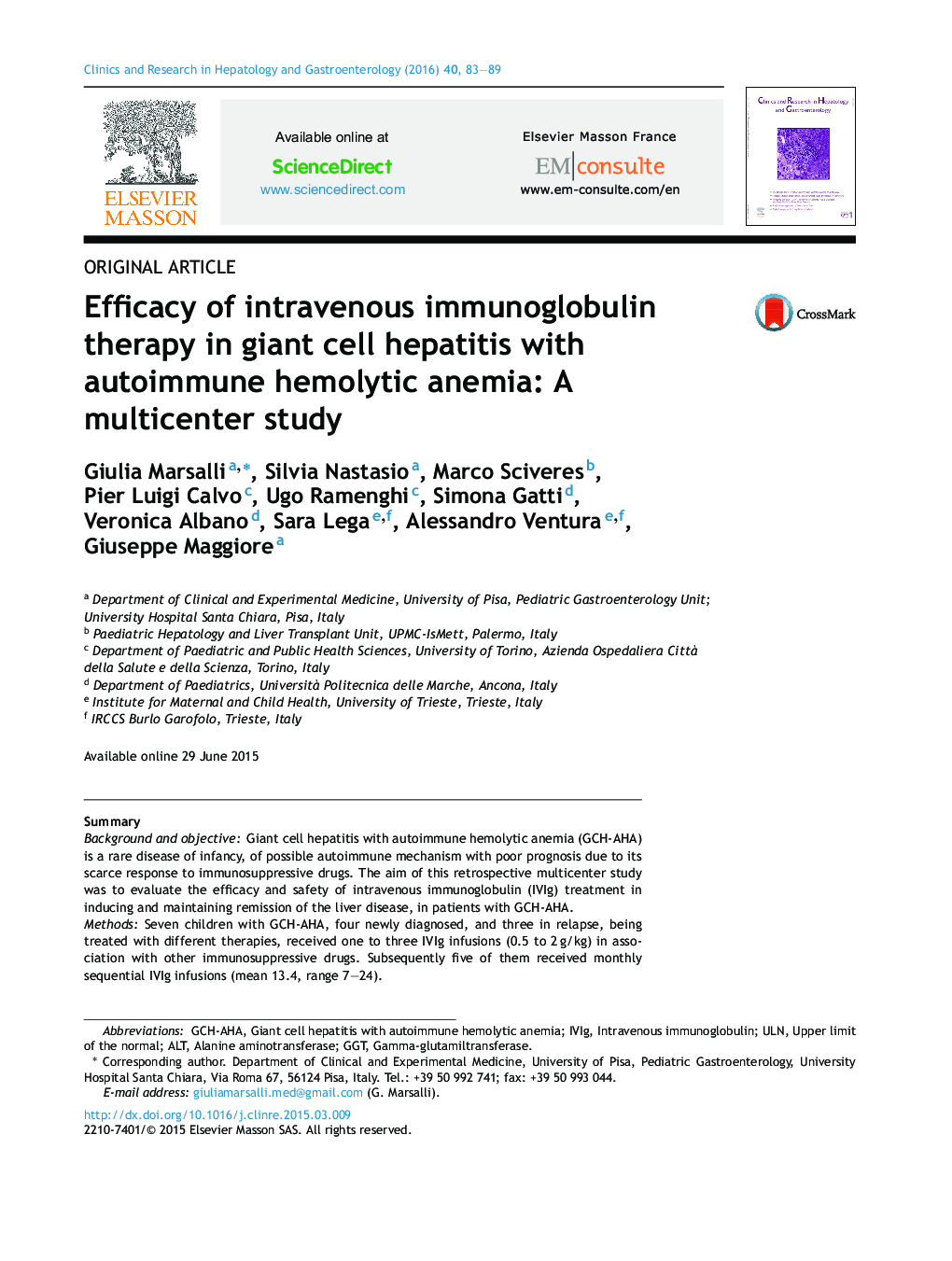| Article ID | Journal | Published Year | Pages | File Type |
|---|---|---|---|---|
| 3286122 | Clinics and Research in Hepatology and Gastroenterology | 2016 | 7 Pages |
SummaryBackground and objectiveGiant cell hepatitis with autoimmune hemolytic anemia (GCH-AHA) is a rare disease of infancy, of possible autoimmune mechanism with poor prognosis due to its scarce response to immunosuppressive drugs. The aim of this retrospective multicenter study was to evaluate the efficacy and safety of intravenous immunoglobulin (IVIg) treatment in inducing and maintaining remission of the liver disease, in patients with GCH-AHA.MethodsSeven children with GCH-AHA, four newly diagnosed, and three in relapse, being treated with different therapies, received one to three IVIg infusions (0.5 to 2 g/kg) in association with other immunosuppressive drugs. Subsequently five of them received monthly sequential IVIg infusions (mean 13.4, range 7–24).ResultsIVIg infusions as first-line therapy associated with prednisone and other immunosuppressive drugs significantly (P = 0.04) reduced the aminotransferase activity in all patients and normalized prothombin activity in the only patient with severe liver dysfunction. Sequential monthly IVIg infusions determined a steroid-sparing effect and allowed a complete or partial remission in all patients, although with temporary efficacy, since relapse of the hemolytic anemia and/or of liver disease occurred in all patients. IVIg infusions were associated with mild side effects in two patients.ConclusionsIVIg infusion can be safely and effectively administered in patients with severe GCH-AHA at diagnosis, or in case of relapse, in association with other immunosuppressive drugs. Repeated IVIg infusions may help maintain remission, however, due to their temporary efficacy, they should not be routinely employed.
